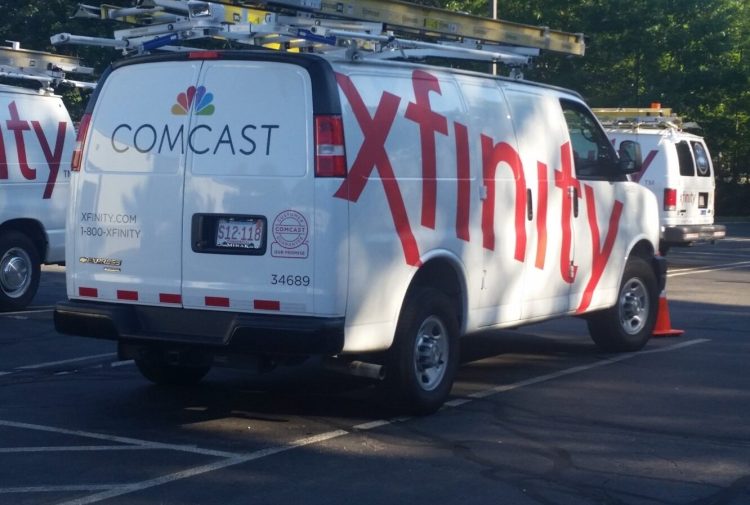A Maine federal judge is deciding whether to put a temporary hold on a first-in-the-nation law that requires cable companies to offer channels on an à la carte basis, a case that pits consumer choice against corporate control.
Federal District Court Judge Nancy Torreson did not indicate when she might rule on the request for a temporary restraining order sought by the Comcast cable company and nine cable broadcasters, including Disney, Fox Cable and NBC/Universal. The cable company and broadcasters sued the state and more than a dozen towns and cities in September over the new state law, which would require cable operators to allow customers to pick and pay for channels they receive on an individual basis.
Cable companies generally offer channels in bundled packages, and critics say that forces consumers to pay for channels they’re not interested in watching in order to receive the channels they do want.
The à la carte cable law was passed by the Legislature earlier this year and took effect in September. It would likely have to be enforced by individual towns and cities, because the cable companies have franchise agreements with municipalities. But the state has indicated it would hold off pushing for enforcement until the lawsuit is settled.
A restraining order would formally block enforcement of the law as long as the order remains in effect.
If the law is upheld, Maine would become the first state in the country to require à la carte cable selections. That would explain the phalanx of lawyers sitting in Portland’s federal courtroom Friday when the measure came before Torreson. Ten companies have signed on as intervenors or offered friends of the court briefs in the Comcast case.
A lawyer representing Comcast told Torreson on Friday that the law would limit choices and lead to higher prices for consumers. Matthew Brill said that channels with more limited viewership would likely fold or no longer provide programming in places with à la carte systems. That would allow the more popular channels to raise prices for their programming, he said.
The Maine law “seeks to alter, fundamentally, the way cable service is provided,” Brill said. “It would upend the economics of this industry.”
But Torreson replied that it appeared to her that “the state is trying to get a better deal for customers.”
Brill said that federal rules appear to bar states and localities from imposing such restrictions on cable companies, and also said that the law would trample the cable company’s First Amendment rights to “editorial control” over what programming it offers and how it structures cable offerings.
But Christopher Taub, representing the state, told Torreson that Comcast was trying to cloak business decisions in the Constitution.
“They’re saying they have a First Amendment right to require that if a customer wants CNN, they also have to buy HGTV,” he said.
The Maine Association of Broadcasters, the National Association of Broadcasters and the Motion Picture Association have all filed briefs in support of Comcast’s challenge to the Maine law.
Suzanne Goucher, president and chief executive officer of the Maine broadcasters, said her organization’s concern is that the Maine law doesn’t exempt the basic tier of cable service, which includes local broadcast stations, from the à la carte requirement. Federal rules require cable companies to provide the basic tier as part of all cable packages.
If customers can pick and choose among local stations, she said, the concern is that they might pick only one, weakening financial support for the others.
Goucher said when a similar law was considered by the Legislature four years ago, lawmakers in committee amended it to make clear that the à la carte requirement didn’t apply to the basic tier of channels.
That measure was defeated in the full Legislature and the clarification wasn’t included in this year’s bill, which was sponsored by Rep. Jeffrey Evangelos, I-Friendship, and passed by the Legislature earlier this year.
Evangelos has said he championed the law after meeting senior citizens who said they could no longer afford cable service. Allowing them to pick only the channels they wanted to watch, he said, would save them money.
“The cable companies are hemorrhaging customers. You’d think they’d embrace this bill as a savior for their industry,” Evangelos said. “The truth is they are already offering à-la-carte, pay per view, and streaming services when it suits them. Now it’s time they offered programming that suits their customers, who are demanding reforms and action. That’s why I introduced this bill. Because cable customers are tired of getting screwed, being forced to pay for scores of channels they don’t want.”
Send questions/comments to the editors.



